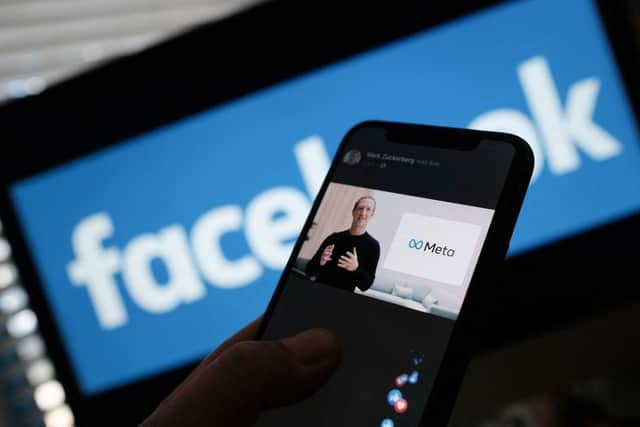Meta Facebook: Why is Meta threatening to block news content in the US?
But now Meta, owner of the social media platform, is considering banning news stories from being shared by its users in the US amid a row over proposed new legislation.
The Journalism Competition and Preservation Act (JCPA) would create a four-year exemption under US anti-trust law, allowing news outlets to bargain collectively against social media platforms for a larger share of advertising revenue in exchange for their news content.
Advertisement
Hide AdAdvertisement
Hide AdMeta, however, has told media firms “no company should be forced to pay for content users don't want to see”, in a targeted dig at the industry, which it said last year accounts for only 4 per cent of its shared content, dismissing news content as having a “minimal” business gain. The company has also claimed it helps media outlets by driving traffic to news sources, saying "it benefits their bottom line".


The furore echoes a similar situation in Australia last year, when news content was temporarily banned by Meta, until the firm brokered a deal with the Australian Government. Banning news is a major hit for media outlets, especially local newspapers, which struggled during the Covid pandemic and amid an increasingly online news market.
Meta, however, recently posted third quarter revenues of $27.7 billion [£22.7bn] – albeit a 4 per cent drop on the previous year.
“If Congress passes an ill-considered journalism bill as part of national security legislation,” Meta said in a statement tweeted by spokesman Andy Stone, “we will be forced to consider removing news from our platform altogether rather than submit to government-mandated negotiations that unfairly disregard any value we provide to news outlets through increased traffic and subscriptions.”
Mr Stone added: “The Journalism Competition and Preservation Act fails to recognise the key fact – publishers and broadcasters put their content on our platform themselves because it benefits their bottom line, not the other way around. No company should be forced to pay for content users don't want to see and that's not a meaningful source of revenue.
"Put simply – the government creating a cartel-like entity, which requires one private company to subsidise other private entities, is a terrible precedent for all American businesses."
The bill, introduced in Congress by Minnesota Senator Amy Klobuchar, has bipartisan support.
The tech industry more generally has opposed the legislation – and has been backed by some civil liberties groups, who have claimed the JCPA could allow news websites to sue tech platforms for reducing a story’s reach and bully them into not moderating content properly.
Advertisement
Hide AdAdvertisement
Hide AdThe letter, signed by the American Civil Liberties Union, the Electronic Frontier Foundation, the Wikimedia Foundation and Public Knowledge also claimed major media companies could end up being favoured by the JCPA , rather than helping smaller, independent news outlets.
However, Matt Stoller, director of research at the American Economic Liberties Project, said media outlets were being "eaten alive" by Meta. "Meta's efforts to blackmail Congress prove again why this monopoly is a threat to democracies worldwide," he said.
Comments
Want to join the conversation? Please or to comment on this article.